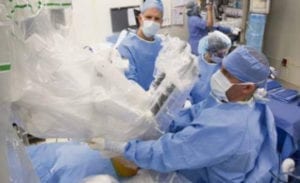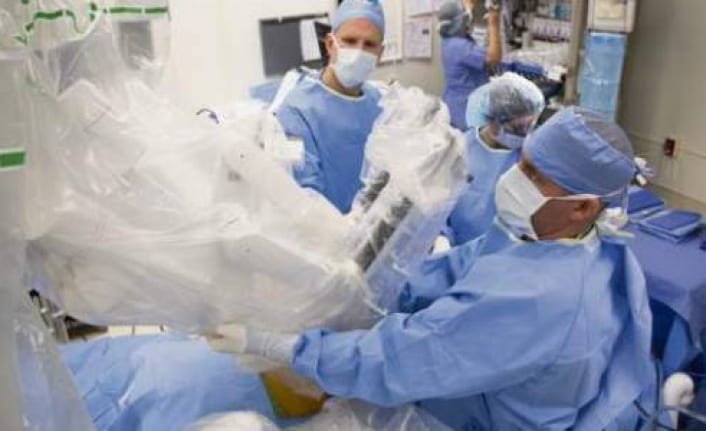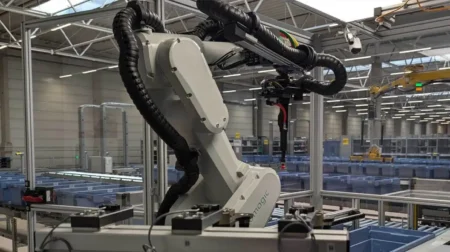An upgrade to a hospital’s robotic surgical system is ensuring that the latest tools and techniques are available to patients.
For over a decade, surgeons at Excela Health have been performing robot-assisted surgery at Excela Latrobe Hospital in Pennsylvania, USA.
Now, Da Vinci Xi offers advanced instrumentation, more versatility and flexibility for a variety of complex procedures.
It includes multi-functional instruments that are inspired by the human hand, but with a greater range of motion for fully wristed dexterity and surgical precision.
Using robot-assisted technology, the surgeon operates sat at a console while looking at the surgical field as a three-dimensional image that vastly enhances depth perception.
Below a display, surgeons can manipulate master controls that work like forceps while the system translates hand, wrist and finger movements into precise, real-time movements inside the patient through miniaturised surgical instruments attached to robotic arms.

Michael Szwerc, thoracic surgeon and medical director of Excela’s robotic programme, said: “Latrobe Hospital was one of the first hospitals in Western Pennsylvania to start a robotic surgical programme.
“Because of the surgery volume and complexity of procedures being performed at Latrobe, it became necessary to upgrade the robotic system to the newest generation of systems available.”
Thanks to robot-assisted surgery, patients experience less blood loss and smaller scars, quicker recovery and less postoperative discomfort, which contribute to shorter hospitalisations.
Dubbed ‘Intelligent Surgery’, this capability also creates a more efficient operating room, allowing for greater flexibility in procedure scheduling, which benefits patients and the care team alike.
At Excela Health, 17 surgeons in a variety of specialties perform robot-assisted surgery. The technology is widely used for prostate surgery, gynecologic surgery (including hysterectomy and uterine fibroids), thoracic surgery, general surgery (including hernia, small bowel resection and others), and surgeries for various types of cancer.
In 2019, nearly 650 surgeries were performed robotically, with gynecologic and thoracic surgeries the most common.
Carol Fox, chief medical officer, Excela Health, said: “Robot-assisted surgery is another example of Excela Health’s commitment to remain a leader in offering new and better ways to care for our patients.”
“Today’s surgeons are training with robotic tools and are expecting to find them where they choose to practice. This is an investment in the vitality of our community and its appeal to future healthcare providers.”








